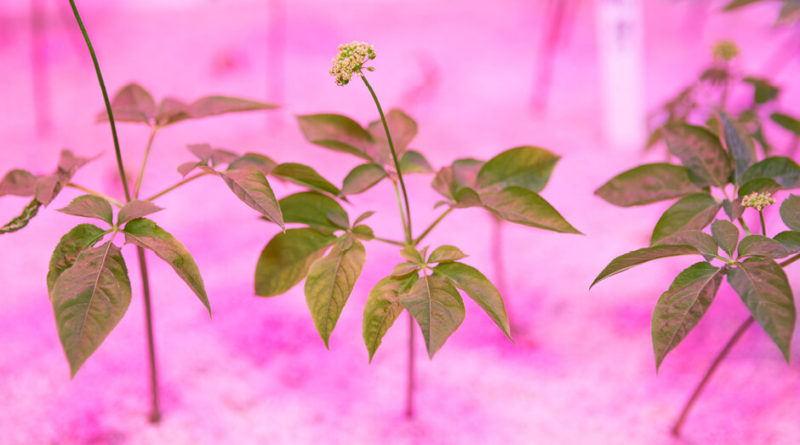Don’t Try to Grow These Plants Hydroponically
Some crops just do better in hydro systems. Hydroponic crops are typically fast growing, have shallow root systems, and have lower nutrient demands than fruiting crops—think lettuces, greens, and herbs.
Some plants, on the other hand, were not meant to grow hydroponically. That doesn’t necessarily mean they can’t be grown in a growroom, but there are some plants that don’t grow well, some that don’t make sense from an economic or financial return standpoint, and then there are those that probably won’t work well due to space restrictions.
On a related note, there are also some characteristics of growrooms and inputs that would make the cultivation of plants in hydroponic systems challenging for even an experienced grower.
Email Newsletter
Join thousands of other growers who are already receiving our monthly newsletter.
Plants That Don’t Typically Do Well in Hydro Systems
Some plants just flat out do better in soil culture. Potatoes, for example, are not a crop that does well hydroponically. Neither are sweet potatoes. Don’t even think about yams. Other large root vegetables like rutabaga, turnips, onions, garlic, and carrots typically do better in traditional culture as well.
 Radishes may not be worth growing hydroponically | Source: epixproductions/Shutterstock
Radishes may not be worth growing hydroponically | Source: epixproductions/Shutterstock
Plants That Don’t Make Economic Sense to Grow in Hydro Systems
There are some crops that require a larger investment at the get-go. If you grow hydroponically purely for your own enjoyment, then this might not be an issue for you. If your intent is to grow a marketable crop for profit, however, then these crops are not cost-effective to grow.
Read also: Niche-Market Hydroponic Crops: Ginseng, Bay, and Tarragon
Radishes, which are picky about their media, fall into this category, given their relatively low market price. Even some lettuces and greens are included in this category when their soil-grown counterparts are in season.
Now, having dissed these crops, there may well be niche markets that will pay higher-than-average prices for out-of-season vegetables, for crops not easily grown in the area, or for the novelty of hydroponically grown vegetables. Remember though: these opportunities aren’t all that common.
Plants That Would Outgrow Most Home Hydro Systems
Hydroponic systems are often inside homes and buildings, which are finite spaces. This usually rules out the growing of fruit trees and nut trees, as well as most shrub-type plants.
Not only would the hydro system require an enormous reservoir or tank to house the root system, the amount of space needed to accommodate the plant itself would be quite a bit of real estate.
Corn also falls into this category (it’s also a crop that doesn’t make economic sense to grow). Same goes for squashes and melons.
 You may not want to grow plants that require staking or trellising in an indoor hydroponic garden. | Source: topimages/Shutterstock
You may not want to grow plants that require staking or trellising in an indoor hydroponic garden. | Source: topimages/Shutterstock
Tomatoes can also fall into this category. I say “can” because tomatoes are vines and will need trellising or some other structure for their cultivation.
There are hundreds of successful hydroponic operations growing tomatoes, but these are typically in large, greenhouse settings and not in the typical home-based hydroponic system.
Similarly, cucumbers can do reasonably well in hydro systems, but most heirloom species do not because they require trellising system for their heavy fruits and many square yards of space per plant for their vines and foliage.
Read also: Get Snackin’: Salty and Savory Hydroponic Crops
Other vining crops that can outgrow their space and be a nutrient drain on the hydro system include peas, pole beans, nasturtium, and hops. They all can be grown in a hydroculture system, but they require a lot of work.
The height of the grow lights must be regularly adjusted, nutrient levels need to be adjusted according to the stage of plant growth, trellising needs constant inspection and additional supports, and frequent pruning needs to be performed to successfully grow vining crops in a hydroponic set-up.
Other Factors That Make Growing Any Plant in a Hydro System Difficult
Even the easiest crops to grow hydroponically can become difficult to nearly impossible to grow if the growroom conditions are not conducive for production.
In an attempt to avoid a “hydroponics 101” lesson, let’s assume hydro growers know that plants need light, water, and nutrients in appropriate amounts respective of their varietal needs.
However, if the only source of water available to you is overly chlorinated or high-pH municipal water, this will make growing anything difficult without proper water treatment. Water sources located too close to salt water are also problematic.
An overly arid or humid environment is not conducive for hydroponic production either. A dry space can cause too much of the water to evaporate, potentially exposing the roots to desiccation, while an overly moist environment can invite fungal pathogens.
 Nutrient needs for leafy vegetables and herbs are different than those for fruiting plants. | Source: Floki/Shutterstock
Nutrient needs for leafy vegetables and herbs are different than those for fruiting plants. | Source: Floki/Shutterstock
Using the same nutrient solution on all crops regardless of species and point of maturation will make also make growing more challenging. The nutrient needs for leafy vegetables and herbs are different than those needed for plants setting fruit. Also, plants need different nutrients at differing rates during root development, leaf development, flower, and fruit and seed development.
Regarding specific varieties of plants, there are cultivars and species that are more suitable for indoor production than others. When selecting seed for hydroponic production, try to find varieties that are known to be reliable for greenhouse production.
Read also: The Art of Harvesting Hydro Hops
These have either been specifically bred to work in indoor culture or have properties that allow for it more easily than others in their respective species. Seed sources generally label their seeds as such, or they can help direct you to these varieties.
In conclusion, there are usually modifications that can be made to any hydroponic system that would allow for the production of almost any crop. However, there are times when it just isn’t worth it.




